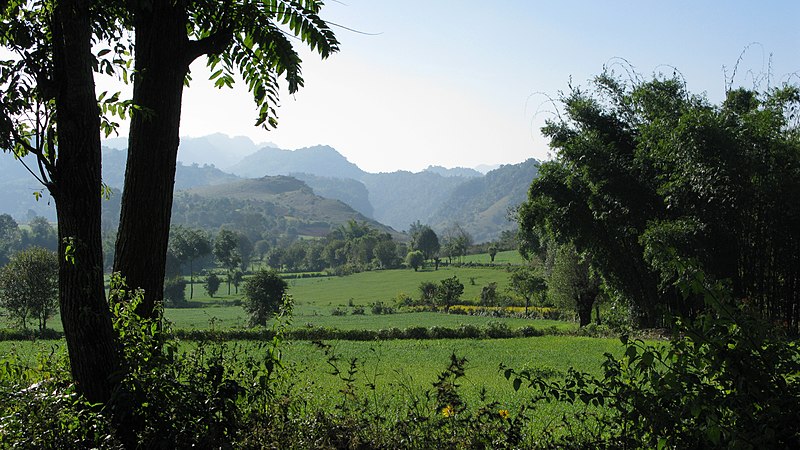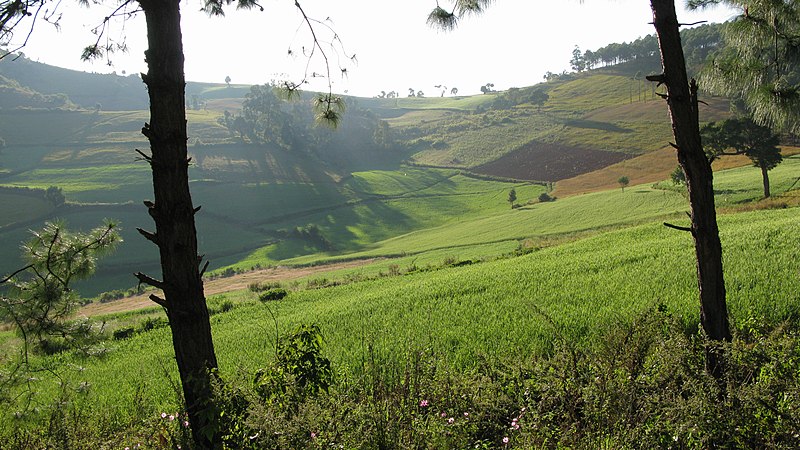
Thammasat University students interested in education, ASEAN studies, Myanmar, sociology, political science, and related subjects may find it useful to participate in a free 10 July Zoom webinar on Education Disrupted? Legacies and Prospective Transformations in Myanmar’s Education Landscape.
The event, on Monday, 10 July 2023 at 9am Bangkok time, is presented by ISEAS – Yusof Ishak Institute, Singapore.
The TU Library collection includes several books about different aspects of education in Myanmar.
Students are invited to register at this link:
https://us06web.zoom.us/webinar/register/WN_H9g2LwzWTDS8lZcseNHpJw#/
The event announcement states:
About the Webinar
The February 2021 coup in Myanmar led to an apparent watershed moment, with many groups – both old and new – calling for a new political blueprint for the country. The coup also disrupted the trajectory and choices of secondary and tertiary-level education in Myanmar, affecting the country’s future skills, growth and productivity potential. Pro-democracy stakeholders have started broad efforts at creating alternative education options for students in Myanmar, especially those aspiring for quality education. Many ethnic-based organizations have galvanized into expanding or creating new post-secondary institutions that teach innovative curricula in their territories.
Structural inequalities are not new in Myanmar’s education landscape. The 2021 coup has laid bare many historical legacies which must be confronted if democratic stakeholders are to succeed in creating a federal education system that can suit the needs of all ethnic and social groups in Myanmar.
In this webinar, three speakers will look at past, present and future challenges in Myanmar’s education landscape, and discuss how pro-democracy stakeholders can potentially develop a new tertiary education system that is inclusive and meets the needs of the youth.
About the Speakers
Isabella Aung is a doctoral candidate in the Department of Political Studies at Queen’s University, researching grassroots women’s digital activism in the ongoing anti-authoritarian movement in Myanmar. Her research explores how contemporary authoritarian power is both contested and sustained through social media. […]
Hla Hla Win is CEO and Co-Founder of 360ed, an EdTech social enterprise. […]
Saw Kapi is Director of the newly established School of Governance and Public Administration, a joint programme of Myanmar’s Salween Institute for Public Policy and Thabyay Education Network Foundation. […]

Last year, in an interview posted online, Saya Saw Kapi stated:
In fact, the military council’s education system has not changed. They are still using the exact education system that was established under the NLD government. What has changed are the leaders. The system is no longer under a civilian government, but has been put under the military government, which is the military council. People no longer want their education system because the military council [maliciously] mixes education with politics. To be honest, we don’t like it either. We don’t want this education system, which could ultimately lead to the legitimization of the military council.
The second thing is the federal education system, which the NUG is still trying to implement. But it’s not yet certain whether there will be a real federal education system. But one thing is for sure: if we implement the education system based on the federal democratic charter, it will certainly be better than the one under the coup regime. It will be better, but for now the NUG is still trying to close the gaps. If it succeeds, it could be better than the military council’s education system. […]
At a time when our country is changing and we want to build a federal system, state governments need to be able to handle administrative mechanisms and public affairs management well. To achieve this, a lot of preparation needs to be done. For the necessary preparation, we primarily conduct these kinds of courses here. But our public administration and management course is not a face-to-face course. We conduct it online so that all interested students from all over the country can attend, but still the number of students for each course is limited. […]
There will be many effects, because many young people didn’t receive the education they deserved during the revolution. Some, by their own choice, didn’t accept the education that the military council offered during the revolution. They wanted to participate in the revolution and accepted the fact that their education would be interrupted. Some of them accepted this as a change for the country, while others felt that their education was interrupted because of the current situation.
When it comes to education, this situation has been common in our ethnic areas for a long time. We’ve not had proper education for more than 70 years. They bombed the schools that we built. So, this situation isn’t new to the ethnic peoples. And the ethnic groups are very familiar with how to provide educational services in times of conflict. They know because they’ve always done it.
When the whole country is facing this kind of experience, frankly we need to look at how the ethnic resistance groups have survived and acquired education continuously for 70 years.
I want to shine a spotlight here on the current problem that’s now occurring throughout the country. It’s not the same as it was in the past. The scale of the crisis has increased exponentially. That’s why we need international support such as the Karen Education and Culture Department (KECD) and the Karenni Education Committee (KnEC). We need educational and social assistance. Without this support, our losses will be even greater. […]
In education, we can’t do anything alone or only in a group. Especially if we aim for a federal democracy, there must be cooperation between ethnic educational institutions. For example, we can’t do Mon, Karen, Kachin, Shan or Rakhine education separately. If we want to build a union, we must build cooperation between these educational institutions, and there will also be private educational institutions and community-based educational institutions. In this case, KECD and KNEC should be established as education departments at the state level.
In addition, cooperation between private educational institutions and community-based educational institutions must be strengthened. To a certain extent, this cooperation already exists, but we need to expand it. Because we want to build a great education system with a common goal. And the future education system we need in our country is an education system with many education systems, that’s, a combination of different education systems. […]
I think the educational institutions of ethnic resistance organisations are especially important. We need to understand that building a school and building a system aren’t the same thing. When we build an education system, we need look at the whole system, from early childhood education to higher education.
When we talk about the whole system, it also includes curriculum, instruction, students, and school and university administration. Our educational institutions need to be able to think about the whole system. The reason is that we want to break out of an education system that depends on the directives and manipulations of the central government. If we don’t want to be supervised or manipulated by the central government, we should try to build the whole system ourselves.
To do this, we need to understand the education policies and curriculum framework. We need to know school and university administration ourselves. And also the freedom of universities. If there are too many constraints in education, it’s no longer free. Education without freedom will never produce free people. I think it’s crucial to create an independent education system to produce educated people who can think freely.

(All images courtesy of Wikimedia Commons)
